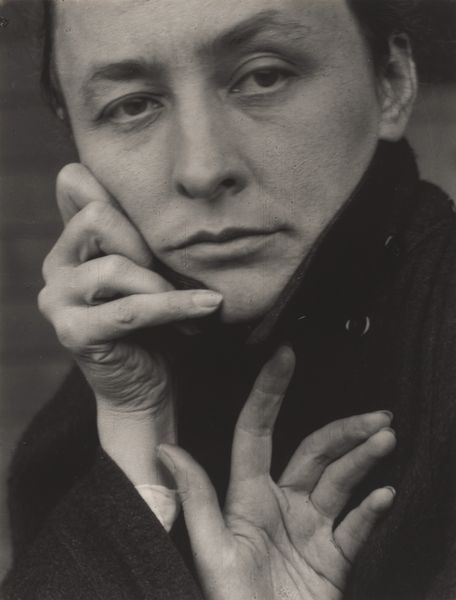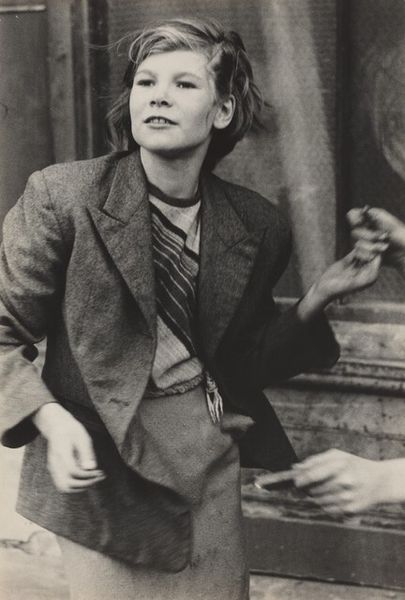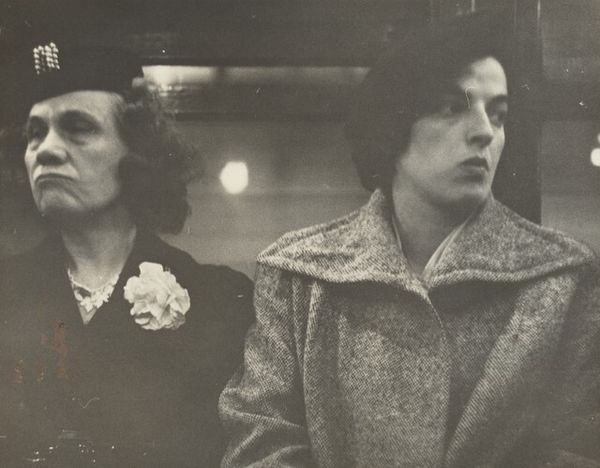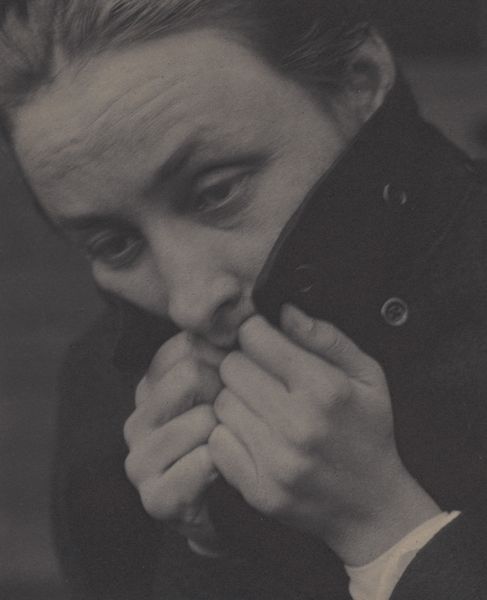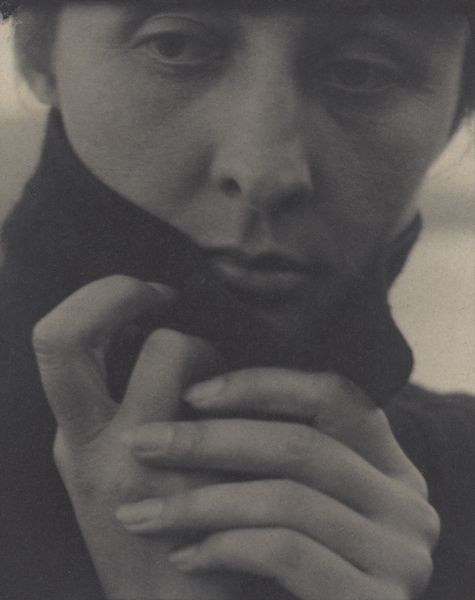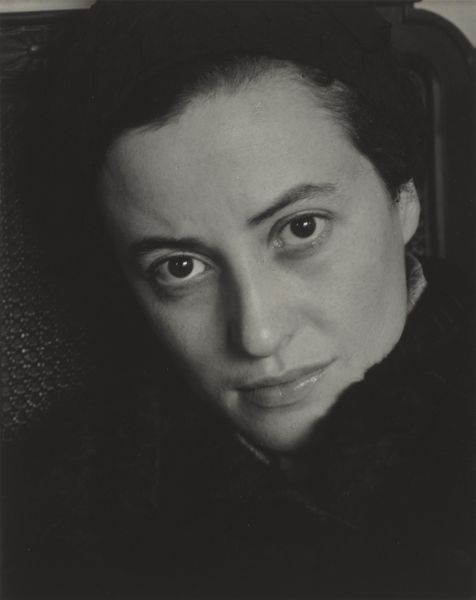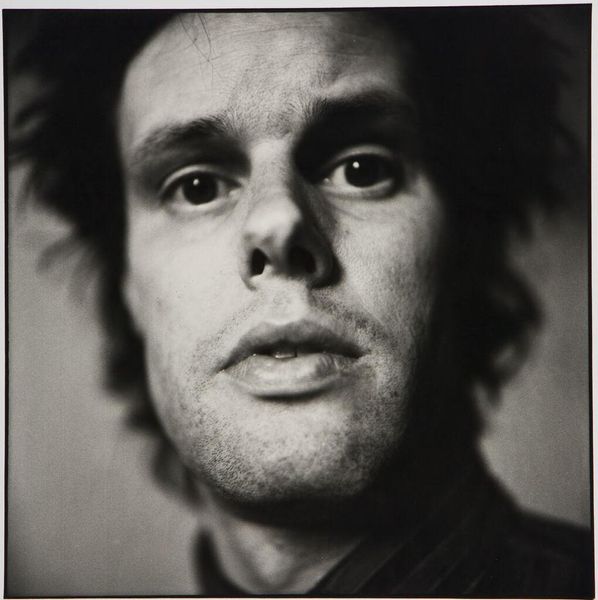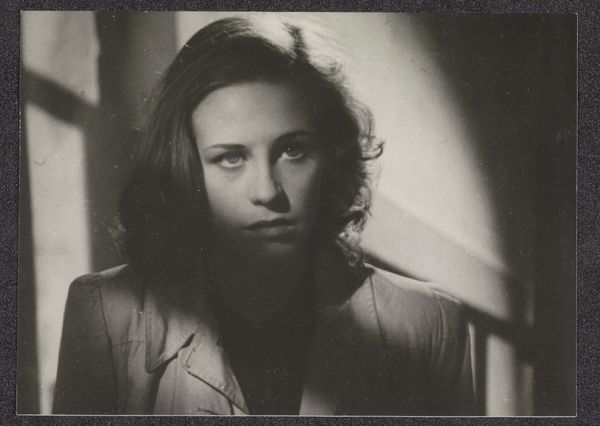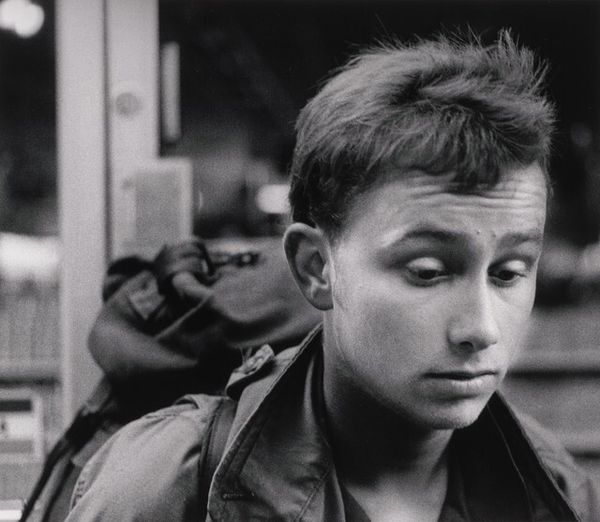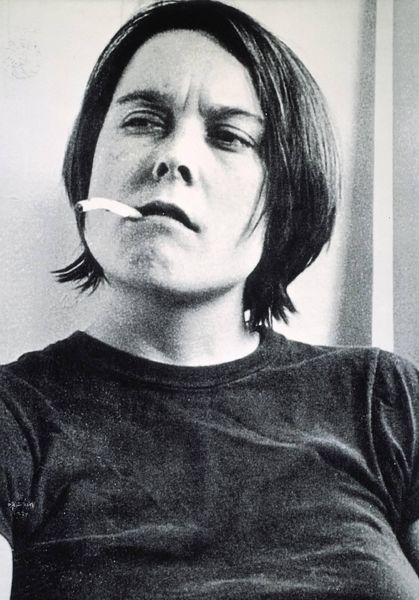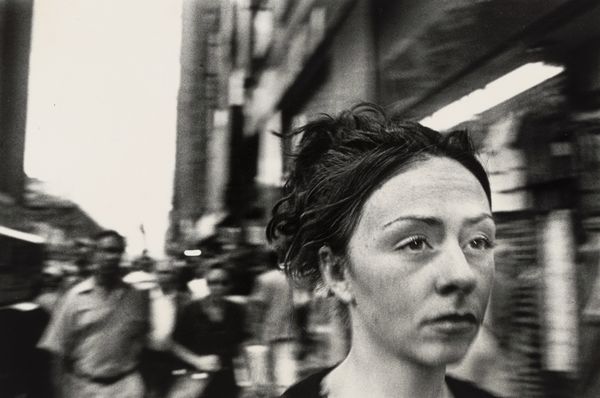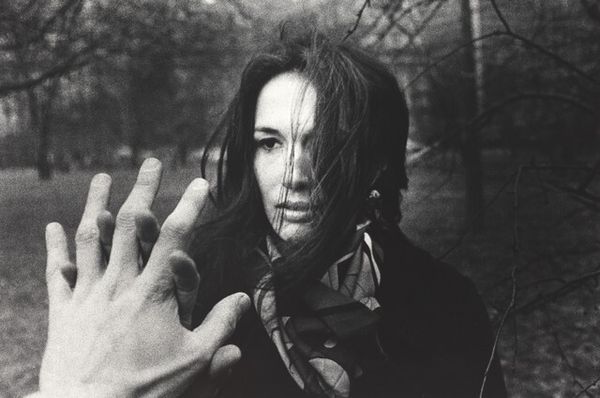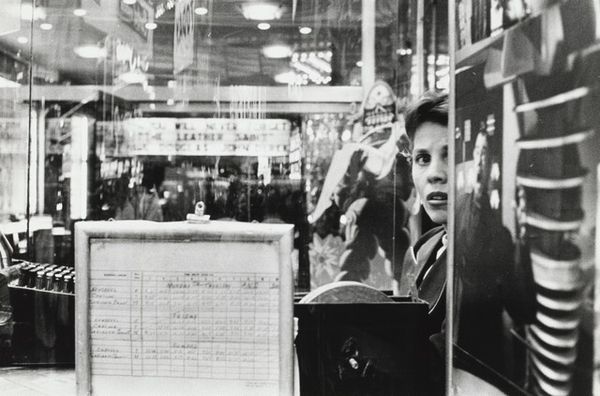
photography, gelatin-silver-print
#
portrait
#
black and white photography
#
portrait image
#
street-photography
#
photography
#
gelatin-silver-print
Dimensions: image: 40.64 × 49.53 cm (16 × 19 1/2 in.) sheet: 58.42 × 67.31 cm (23 × 26 1/2 in.)
Copyright: National Gallery of Art: CC0 1.0
Editor: This is Leo Rubinfien’s "London, 2004, at Camden Lock," a gelatin-silver print, made sometime between 2004 and 2014. It’s a pretty intimate black and white portrait; the woman seems preoccupied, maybe even a little sad. What do you see in this piece? Curator: The apparent melancholy definitely grabs me, but I see it as more than just sadness. Look at the social context: a woman in Camden Lock, likely a hub for diverse subcultures and economic strata in London. This portrait, for me, brings up themes of urban alienation. It's a common experience, but especially interesting to consider through the lens of gender. Editor: Gender, how so? Curator: Well, consider the male gaze prevalent in street photography traditionally. Here, Rubinfien seems to be capturing something far removed from the objectification. The woman is caught in her own internal world, unconcerned with being observed. It begs the question: what societal pressures or personal experiences might contribute to her apparent state? Is it class, the isolation of urban living, or something else? What do you think the fact that this is a black and white gelatin print does to its impact? Editor: It definitely adds a timeless feel. It feels removed from the present, yet relatable in a way that transcends any specific moment. Curator: Exactly. This timelessness allows us to examine how these experiences of isolation and reflection resonate across generations and social structures. It invites viewers to recognize not just individual emotion, but a shared condition, a symptom of the complexities of contemporary life. Editor: I see what you mean. It becomes less about one woman's sadness, and more about a collective experience of existing within these spaces. Thanks, this was insightful. Curator: Likewise. I’ll be thinking about how Rubinfien resists objectification through this careful approach for quite a while.
Comments
No comments
Be the first to comment and join the conversation on the ultimate creative platform.
